 |
| A new blog post on Music Think Tank that you can read here: http://www.musicthinktank.com/blog/are-you-a-brand-or-a-mouse.html |
Viewing: unsigned - View all posts
Is the proliferation of indie streaming platforms hurting unsigned artists?
 |
| A new blog post on Music Think Tank that you can read here: http://www.musicthinktank.com/blog/is-the-proliferation-of-indie-streaming-platforms-hurting-un.html |
FYI, here's a list (probably far from exhaustive) of streaming platforms, from big corporate to independent (I'm not advocating any of them but this is just so that you get a sense of the "proliferation" I'm talking about):
Big corporate platforms:
https://itunes.apple.com/
https://www.spotify.com/
https://play.google.com/
https://music.amazon.com/
https://www.deezer.com/
https://www.iheart.com/
https://napster.com/
https://www.pandora.com/
https://www.shazam.com/
https://tidal.com/
https://music.youtube.com/
https://www.facebook.com/
Outsiders:
https://bandcamp.com/
https://www.reverbnation.com/
https://soundcloud.com/
Focused on licensing but also streaming:
https://www.taxi.com/
https://www.indabamusic.com/
https://www.musicxray.com/
https://www.songtradr.com/
https://www.musicgateway.com/
https://musicvine.com/
https://artlist.io/
https://www.musicbed.com/
https://www.marmosetmusic.com/
https://soundstripe.com/
https://songbay.co/
https://www.epidemicsound.com/
https://www.soundsnap.com/
https://www.audiosocket.com/
https://www.soundvault.tv/
http://brandsforbands.com/
http://www.instantlicensing.com/
https://meta-music.com/
https://www.synchtank.com/
https://www.sourceaudio.com/
http://www.fliktrax.com/
Pure streaming/discovery:
https://www.whoozl.com/
https://drooble.com/
https://www.melobeemusic.com/
https://qwaqq.com/
https://louder.me/
https://noisetrade.com/
https://www.jamendo.com/
https://8tracks.com/
https://www.indiesound.com/
http://streamsquid.com/
http://free-music-playlist.com/
https://www.humbolt.rocks/
https://www.orfium.com/
https://fanburst.com/
https://www.jango.com/
http://groovesharks.org/
https://audiocabin.com/
https://www.di.fm/
https://www.newsounds.org/
https://www.akazoo.com/
https://www.anghami.com/
http://inprodicon.com/
https://www.jtvdigital.com/
https://www.kkbox.com/
https://www.jiosaavn.com/
http://www.touchtunes.com/
http://feature.fm/
https://audiomack.com/
https://clyp.it/
https://hearthis.at/
https://www.datpiff.com/
https://www.soundclick.com/
https://www.damixhub.com/
https://mymixtapez.com/
https://rhythmic-rebellion.com/
http://mpg.dnset.com/radio/
http://musicmetropolis.co.uk/
https://www.broadjam.com/
https://artistrack.com/
https://openmicartists.com/
https://www.tradebit.com/
http://www.touchtunes.com/
https://www.slacker.com/
https://www.jiosaavn.com/
http://www.mndigital.com/
https://music.line.me/
https://www.kkbox.com/
http://inprodicon.com/
http://www.imusicacorp.com.br/
https://www.7digital.com/
https://gimmeradio.com/
https://www.ursamusic.com/
https://www.cleartracks.com/
https://www.timbredio.com/
Coin based platforms:
https://musicoin.org/
https://choon.co/
https://emanate.live/
https://www.emusic.com/
http://www.bittunes.org/
https://www.voise.com/
https://ujomusic.com/
https://atomcollectorrecords.com/
Dirty money and the starving artist
 |
| A new blog post on Music Think Tank that you can read here: http://www.musicthinktank.com/blog/dirty-money-and-the-starving-artist.html |
Does indie music really mean shitty music?
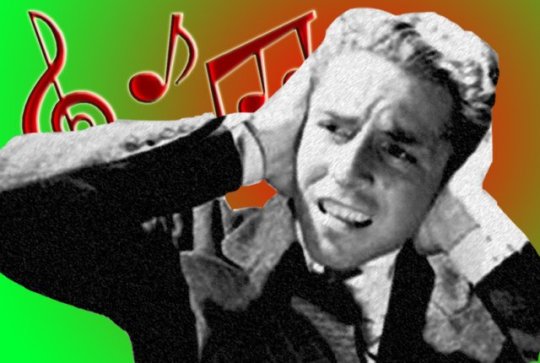
I’ve heard it often: Indie music means bad sounding music, in other words, it’s shitty!
First, indie music is often confused with music recorded in a garage by inexperienced musicians with little or no knowledge of recording and mixing, and sometimes less than adequate equipment.
It’s also confused with a genre that would be some kind of lo-fi punk alternative.
This is why, more often than not, I would use the term “unsigned” rather than “indie” to talk about independent music, recorded by talented musicians and producers all around the globe, in every possible genres you can imagine.
Now, while it’s true that some of it can sound bad, it’s detrimental to think that all of it does, and I would argue that more and more, with the prices and quality of recording gear and digital audio workstations (DAW for short) being so affordable nowadays, and tons of resources on how to record and mix, the end result is getting better and better and more and more unsigned artists are producing quality music.
Still, there are some things that contributes to the myth:
1/ the fact that people are listening on devices that are less than adequate to get a good sound (phones, tablets and laptops speakers are not meant to be hi-fi, and even most bluetooth smart speakers are too often synonym of lo-fi, no bass, mono sound)
2/ streaming platforms and internet radios are using low rates* mp3 quality to air the music, this is because bandwidth has a cost, in terms of speed, and also in terms of prices when it comes to the power of computers able to sustain hundreds or thousands of listeners in a continuous stream. This power cost also translates directly to services costs that radios are subject to.
* streaming rate is measured in kbps, short for kilo bits per second, this is the amount of data that is used to reproduce the sound - the higher the better, up to 320 kbps which is the upper limit and almost lossless.
Now there is a reason why most streaming platforms (like SoundCloud, Spreaker, or even Spotify in their free tier) and most internet radios are streaming at 128 kbps mp3 or more. They have recognized that this is the absolute minimal limit when it comes to listenable quality. Anything under that rate is creating so much artifacts and distortion to the sound that it’s barely recognizable anymore.
Check out this example of a snippet compressed at 128 kbps and the same snippet compressed at 64 kbps. You will hear the enormous difference between the two, check out how muffled the 64 kbps mp3 sounds, how much the cymbals are drowned in a kind of swirling phase artifact, and how horrible this truly is, it’s even worse that cassettes were back in the 80s…
No matter what device you are using I bet you will be able to hear the difference!
You can go back and forth between two snippets in the player below (opens in a new tab/window):
To me the 64 kbps version is hardly listenable. I wouldn't want my music to sound this bad, I bet most indie artists will agree.
Anyway, when you’ll hear a shitty sound don’t just assume the source music itself has been poorly recorded and mixed, check that the streaming rates you are served are not below the minimum of 128 kbps, I and every unsigned artists striving to produce great sounding records will thank you!
The indie radios dilemma
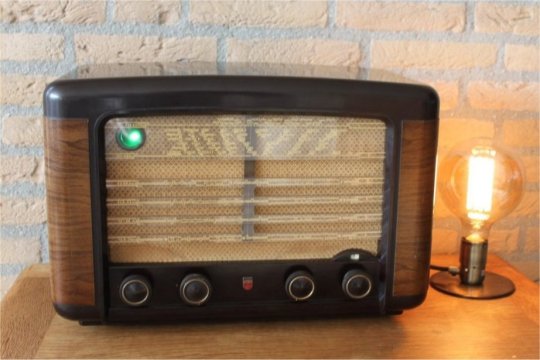
On Facebook today, I read the post of an indie radio owner asking an interesting question, and as much as I wanted to reply directly, I thought there were many aspects to this that couldn’t be summed up in a simple reply to his post.
The question was along the line of “is it fair some play by the rules while others advance by flying under the radar?“ This was referring to the fact that this particular radio was licensed (a laudable move, really, and much appreciated by the artists being played there) and was competing against others who aren’t, and thus are playing music without paying a dime of royalties. This is more common than you would think, whether it’s actual 24/7 radios or simple podcasts.
The thing is that these radios/podcasts are telling artists that they can’t afford paying any royalties, but that this is exposure anyway. That’s right. It’s the good old “exposure bucks” yet again! Now as much as I don’t like the idea of radios using that trick, I believe there are 2 distinct kind of radios that are in this case.
Case 1 / the crooks:
I’ve already written about how artists should pay very close attention to the terms and conditions, and licensing/rights grants that some radios are running under. Whenever you submit your music somewhere, you need to be aware of these terms and conditions, and if you ever read things like “You grant xxx WORLD-WIDE, ROYALTY FREE, IRREVOCABLE, PERPETUAL license, … to use, copy, modify, publish, edit, translate, transmit, publicly display, publicly perform … SUBLICENSE such rights through MULTIPLE TIERS of sublicenses … without any obligation to you, whether by way of compensation, attribution or otherwise … applies to any form, media, or technology now known or hereafter developed.” (this is taken from real terms of use from a real “platform” in case you’re wondering) then you know 2 things:
1/ these guys actually paid a lawyer to make sure they will own your music and will be able to do anything they want with it,
2/ they will profit from your music and you will not. Sometimes they ask you to click a checkbox saying you agree to these terms which are usually miles long and in fine prints, sometimes they will even send you a PDF to sign and return.
In any case, you know you don’t want to go there.
Case 2 / the little guys
Here is the little guy in his garage, who is passionate about music, and effectively doesn’t have any money to pay royalties, doesn’t have any sponsor and is doing it on his free time for the love of it. He might not have such a reach anyway, and there’s not even any terms or conditions to be found on his site, he might not even know of his obligations. Now, I know it’s not an excuse, but I consider that it’s different from case 1 and that he’s not really a big threat to you. Most likely his reach will not be that big and he will probably not bullshit you about the exposure, he just wants to play some music. In this case, I’d say why not? I mean it’s really up to you to see if you want to support this little guy or not. Because that’s what you will be doing by submitting your music to him, and maybe pointing some fans to his show. Perhaps later if this guy gets bigger, will you poke him gently and tell him that he should do the right thing...
Case 3 / the monsters
Now, as much as I hate the scammers of case 1, and how they will undoubtedly misuse your music and profit from you one way or another, it’s not even close to the biggest crooks of them all, the streaming platforms. The one that actually make billions of profit for their shareholders when artists see pennies, you know the ones… And yet, unsigned artists pay (via distribution platforms) to be featured there, and expect the famous exposure bucks that are really nothing more than a pipe dream, when these platform’s "search and discover" algorithm are bend towards the mainstream and big labels’ music.
So I believe the most immediate threat to indie radios are not the little guys, not even the scammers, although they could be perceived as such, but really these monsters who are hell bent on creating a monopoly and dictate what you should listen.
AM/FM
And BTW there’s another thing to know about internet radios competitors: did you know that in the US, terrestrial broadcasters (AM or FM stations) do not pay performers or sound recording copyright owners; they only pay the songwriters. That’s another unfair advantage that works against indie internet stations.
The MMA
Now will the Music Modernization Act that just passed as law in the US make a difference there?
Not in the slightest.
There are indications that a lot of unclaimed royalties (for songs which are not registered directly with the US Copyright Office) will go to a black box that will later be redistributed based on market share, meaning that the 3 big labels will get the lion share again. They will also have a seat on the non-profit government agency that will create the database related to the owners of the mechanical license of sound recordings, so they will have little incentive to find the authors of these unclaimed royalties, because in the end it will go in their pocket.
The NOIs
It was already the case with millions of address unknown NOIs (Notice Of Intent of usage) filed by streaming services, which are cases where these services claim they didn’t find the owner of a song they use. There is actually a search tool you can use to search this database (you'd have to register there, but it's free to use) You will see that Spotify for example can’t always find Ed Sheeran or Bruno Mars or The Beatles. Doesn’t seem to me they are looking very hard…. Do you think they will put much effort in finding Ghostly Beard??? (Turns out I have a few NOI in there!).
Show me the money!
Finally, one final fact that is troubling about the internet radios licensing. After being played on some of these radio who claim to pay royalties , I have yet to receive one cent from SoundExchange or SOCAN, and this is a year and a half after releasing my first EP which was widely played… So what’s up with that?
My guess is that although the radios are paying the royalties, these are just going into another giant pot and redistributed based on market share again. If that’s not the case, then I should at least have seen records of what’s been played even if it did earn me portions of a cent…
So where does the money go?
Exposing the exposure
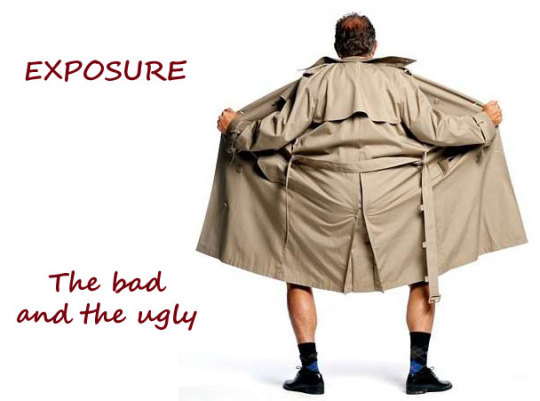
If you are into any kind of arts related circles, you’re bound to have encountered the mythic exposure bucks: It’s the kind of money that is offered by promoter/scam artists who want to use your art for no payment at all. Of course, by doing so they will themselves get some money, sometimes even asking you for it!
Now that’s an offer that is hard to refuse, right? You get “exposure bucks” for a few dollars (or euros, or pounds or whatever your real money is). The rate is always fluctuating, and is set by the “promoters” themselves, it’s almost like crypto currency, and it’s been around even before that crypto scam was invented! And nowhere more than in the unsigned music world is it more prevalent.
It’s hard to navigate the unsigned world, but it gets even harder as soon as you encounter these people who will send you emails and private messages on social media, telling you about their “wonderful” opportunities, when it so happens that they have a promotion for you! (That’s right! They always have a fantastic/brand new promotion just for you!).
But I would be very wary of anyone contacting you to “promote” your music. Spoiler alert: This is NOT how it works!

Now of course these con artists are just a little nuisance compared to the more greedy and powerful of them all: the streaming platforms. These platforms who manage to make you believe that they are going to pay more in the future (I actually heard some artists believing and repeating that!), when simple arithmetic will tell you that it’s simply not possible: the rate they pay is primarily based on what the average song value is, which is itself based on the number of songs they have in their catalog divided by the number of paying subscribers they have (minus all the expense they have, which are big, including royal payments to themselves).
Problem is that EVERY DAY more than 24000 new songs are added to streaming platforms, and although they are adding new subscribers most of them are free listeners or get some kind of discount, so of course these corporations keep hemorrhaging money in every corner. How do you think their rates are going to get higher? Is that magical thinking from desperate artists? No, of course not, because this is where the mighty exposure bucks come to the rescue! Yay!
They will just tell you that you shouldn’t look at the money anyway…
No, really! You should take into account the exposure they allow you to get. What with their millions of people listening, eh? Now that would be so true if their algorithms were not meant to discard you little ones in favor of the big ones from the big labels that they push on top of every searches. If they didn’t have big ties with labels to push the same artists on all their playlists. That might be true if the vast majority of the listeners weren’t listening to the same decades old catalog.
In the end, it still comes down to this: whether they are little con artists or big crooks, it’s really up to you to say no to exposure bucks, because one thing is for sure, you won’t be able to pay your rent with these.
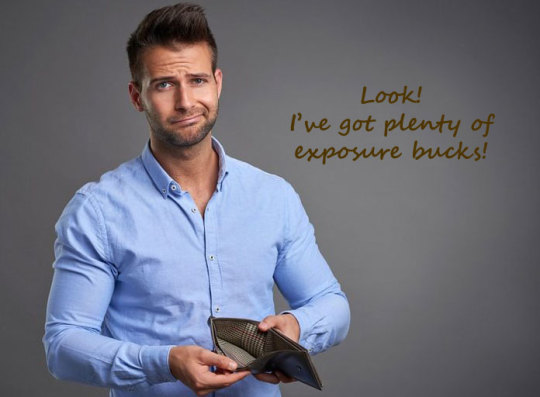
Beware of the coin men!
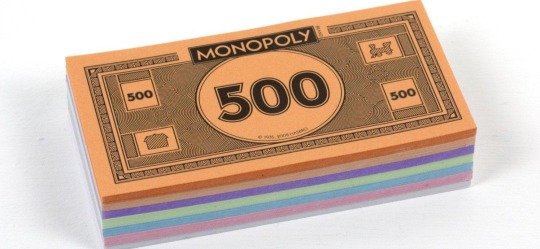
I’ve been reading about Blockchain lately… You’ve probably heard of it, at least you must have heard of Bitcoin, and have heard the latest crypto babble that the media enjoys so much. After all a good jargon is the wet dream of every journalist.
Now this technology is supposed to be the remedy to everything… Yes! Even the music industry! And well, if it can cure that, surely it will cure cancer!
Enter Musicoin and co
In the unsigned world, I see some people rave about Musicoin for example, and how this wonderful platform is going to pay out more than any streaming platform and materialize money out of thin air, without any ads, while still being totally free for listeners. That’s pure magic or I don’t know what!
Turns out that Musicoin is only one of the many new platforms with more white paper than sense, apparently. (Boy! Do they love their white papers! They are all chock full of technical jargon that is mostly included to confuse you even more than you were). Digging a bit, without too much effort, I then found out about other platforms like Artbyte, Soundchain, Emanate, eMusic, Bittunes, Voise, Choon, Ujo (this one is funny, with Imogen Heap herself having released her “Tiny Human” song which sales amounted to a grand total of $133.20!) plus all these exotic new “currencies” dedicated to music like Musicoin but also Audiocoin, Songcoin, Metal Music Coin, Muse, Beatcoin… looks like they invent a new coin every day. Check out this website which references 1916 of these entries (as of today anyway!) Actually there is even a platform that allows anyone to create their own! Time for a BeardCoin?
My first contact with Musicoin was from links that some indie enthusiasts were sharing. Being curious I tried to listen, but the player would never want to play, so I went to the website and it looked rather messy to me. Not a really good impression overall. But OK. That’s another beta platform, right? <insert big sigh here>
Since their claim to being able to pay a decent amount per play was pretty extra-ordinary, I decided I would dig further… But I’m going to tell you straight up: I didn’t like what I found. At all.
Monkey money, monkey business
First, the value of Musicoin is in fact so fluctuant that what you read on their platform about the supposed earnings of the artists is never even close to reality. You see, first you have to exchange $MUSIC currency into another more accepted crypto currency (Like Bitcoin or Ethereum), using a convoluted process involving trading on a coin market or another (there are only a couple that can do this at the moment). The process is so ridiculously complex, involving installing a wallet application on your PC, opening an account on a couple trading sites, juggling with obscure hashes and calculating decimals, and gauging whether the time is right to “sell” your precious coins, that only seriously chronic nerds are going to want to go near it. I’m not joking, see this tutorial.
The real cost of Blockchain
The recommended process to ultimately withdraw your few Musicoin earnings is to trade them first against Bitcoin. Of course you will have to pay big fees to do so because the computing of your transaction involves a lot of computers in a pool, and it gets increasingly more complex as days go by, involving increasingly more processing power, and ultimately, increasingly more electricity. Fact is, Bitcoin today is already using 0.5% of the world’s electricity and by late next year, will be consuming more electricity than can be produced by the entire world solar panels. Let this all sink in for a moment.
And then of course, once you get your Bitcoins fractions, you will have to trade them again on another coin market into some real money, which means a lot more transaction fees (up to 50% from what I’ve seen) and a lot more electricity consumption…
Techno magic
Reading further on the Blockchain craziness, it turns out there is a lot of approximation and misinformation around (but of course there is, it’s a big buzzword in the press, and most journalists have no clue about the underlying technological issues, which are apparently numerous). I also found some articles that took to debunk all this hype, for example this one about eMusic (a Musicoin competitor). Let’s just say that I don’t have all the background that this guy has, but I have the general feeling again (thanks Mom, wherever you are!) that when something looks too good to be true, it generally is! Anyway, the guy wrote a book about the Blockchain scam.
So, to sum up: you get your tunes on a platform that’s pretty buggy (it’s beta), people are going to listen to them for free, you get paid virtual coins that you need to exchange against other virtual coins using a complex process, opening many accounts on various platforms, leaving more of your private information everywhere, trade on a virtual market that is bound to spiral down when all is said and done (remember the internet bubble burst? I do) and is consuming electricity at an exponential rate, which will ultimately eat all our planet resources… what’s wrong with this picture?
The worst of it
All of this and I still have another issue with this whole thing. And it’s another big one: turns out that this whole mess is again making everyone believe that it’s perfectly normal to listen to music for free, that no one needs to pay for it. Aren’t we all tired of this refrain?
If the fact that it’s all based on more hype and technological magic than reality, the fact that it’s unsustainable long term, the fact that it’s endangering our planet resources, if all of that wasn’t bad enough they are also basically saying that music is not worth paying for.
Finally, the terms of use pertaining to license grants on most of these new platforms were alarmingly similar to the ones I advised everyone to stay away from…
In conclusion, you know what? I wish you all good luck with this, but you can count me out. I mean until they come out with something really significant of course, like a BeardCoin for example, at which point I might trade my Monopoly money for it.
License to steal

The indie world is full of wonders! No, really! Every day, if you are an unsigned artist, you will get at least a dozen of marvelous opportunities in your mailbox, or via social media private messages… It’s amazing how everyone wants you on their platforms or radio, amazing how many people want to promote your music, and bring you in front of millions of potential fans!
Turns out that all of these so called opportunities are click baits and you will soon learn that for the discounted price of $$$ (they accept Paypal!) you will be the new star of a social media no man’s land, guaranteed!
I must be getting old, because I will repeat what my mama used to say: when it sounds too good to be true, it usually is! That’s right, if you look closer, all of these wonderful opportunities turn out to not much… but hey, they are at a discounted price!
If you are new to this business, you will quickly learn to discard all these scams, they are not that hard to distinguish, really!
What might be a bit harder to wrap your head around are the countless platforms and radios who are not asking money upfront. You might think: “Great! These are not the scammers, finally! These are real genuine music lovers and they are going to help me reach an audience”.
Now is the right time to read the fine prints.
They usually have that kind of things on a form you will need to sign or agree to when you submit, or as a “terms of use” on their website. Don’t skip that reading! There’s a lot of boring boiler plate stuff, but there’s usually a paragraph about Intellectual Property, or Ownership, or License, or License Grant, or something that defines who owns what, and what you agree to when submitting as pertaining to your content.
USER TERMS - LICENSE
Here’s one of these paragraph, taken randomly from a radio website (that shall remain unnamed - XXX below -, but believe me, there are countless of the same clauses in the “terms of use” everywhere on a big majority of these platforms and radios), so here is just one example:
“With respect to any Content posted by or in connection with the Products and Services, you hereby grant XXX a WORLD-WIDE, ROYALTY FREE, IRREVOCABLE, PERPETUAL license, alone or together or as part of other information, Content and/or material of any kind or nature, to use, copy, modify, publish, edit, translate, transmit, publicly display, publicly perform, and otherwise EXPLOIT such Content (specifically including through streaming, podcasting, online/broadcast and satellite radio, suggested playlists and user playlists, but specifically excluding through phonograph records), to publish and promote such Content in connection with the particular Products and Services (including, without limitation, for advertising and promotional purposes), to publish and promote such Content elsewhere within XXX or any other XXX website through links to XXX, and to SUBLICENSE such rights through multiple tiers of sublicenses, all without any obligation to you, whether by way of compensation, attribution or otherwise. Such license shall apply with respect to any form, media, or technology now known or hereafter developed.”
I have highlighted here the part that they especially DON’T want you to pay too close attention to. Read it again. Let it sink in!
What this basically says is that you are granting these people the perpetual, irrevocable right to do anything they want with your music, to use as they see fit on their platform/radio or any other that they might be affiliated to and might create later. They might use it and license it somewhere else, without your knowledge and you will have no recourse against that. They will have NO obligation to you, not even the obligation to say that this is YOUR music. In short, it’s the good old “all your data are belong to us” again!
So I suggest you read all these “term of use” very closely. Each time you submit your music somewhere. You might have already submitted somewhere with these kinds of terms. I’m pretty sure you did, because they are everywhere. Now is time to think of how much you want that supposed exposure, are you prepare to forfeit your rights to your own music perpetually and irrevocably? What kind of compensation will you actually get from it?
So, again, think long and hard about where you put your music, because otherwise one of these days you will realize that they might not have a license to kill, but you might have granted them a license to steal!
How much is fair?
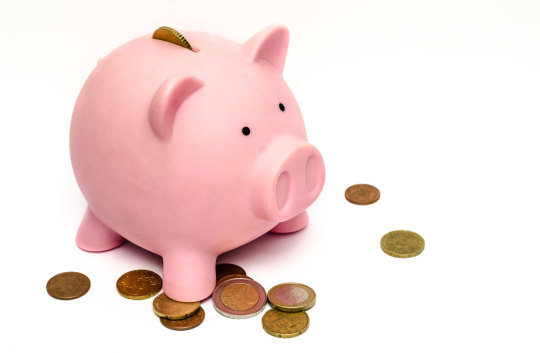
On twitter this week, Indie Music Bus asked an interesting question to artists: What do you think is a fair amount of money to stream 1 of your songs?
I thought about it and I will try to elaborate my reasoning here.
Let’s say the average number of plays for someone buying one of your tune on iTunes or others at a price of $1 (let’s forget the taxes and such to make this simpler) is about 50. That’s a generous number, because I would think that most people will get bored with your tune before hearing it fifty times, some songs might get more love, but most would get less, so let’s keep it simple again, even if this is a gross exaggeration…
Now let’s say that on average the artist gets 50% of the $1. Again that would be an average, because if you sell on your own site, you will get 100%, on Bandcamp you would earn 85% on iTunes, around 35%. So it really depends where you would have sold the song in the first place… But let’s say that you get 50%… this means that you should get $0.5 for about a 50 plays, right?
So to me, the logical, basic, common sense answer on the artist side is $0.5/50 = $0.01 per stream… Now, compare that to the average (ponderated among all streaming platforms) of $0.0016 and you will see that we’re far from what would be considered fair right now.
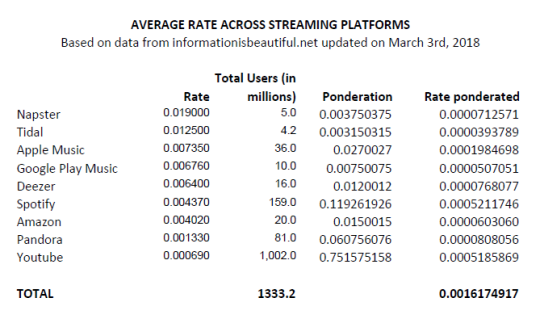
You would say: but these streaming platforms have servers and development costs, employees to pay, offices to rent, etc. Of course! And I would never imply that they shouldn’t take their cut and cover their expenses and costs.
But let’s take Spotify for example: because they keep offering freemium subscriptions (which they have said will increase), spend their money on huge paychecks and royal accommodations while losing millions of dollars and letting scams undermine their own business model, it looks like their cut is never going to be enough. And this is why they are paying less and less royalties, use loopholes and lies to avoid paying royalties and are sued for not paying altogether…
It’s hard to believe that they are acting towards making things right, nor that they have the will to do so in any foreseeable future. I don’t see streaming platforms in general working towards paying artists fairly, quite the contrary, and because of that, I believe we, artists, should not support them in any way.
So in the end, before asking what’s fair for artists, perhaps we should start exposing how unfair the current situation is and make every music lover aware of it.
EDIT: also check out this article on ConsumersAdvocate.org comparing the "Best streaming services" that has some interesting facts about "Fairness in royalties payments"
Questions, questions
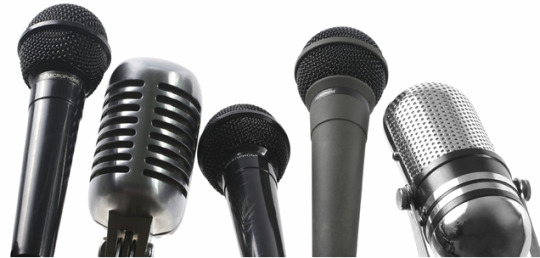
Since I’ve started this thing on social media and reached out to many people in the unsigned world, I’ve virtually “met” countless passionate individuals both sides of the mic.
I’ve been interviewed a few times, and each time I enjoyed the conversation, as much as I hope people listening or reading have enjoyed it…
Still I’ve always felt that I needed to know more about the one behind the mic or the email, because as much as it’s fun to be asked questions about your passion, it’s also a bit frustrating because it only goes one way.
So I’ve started thinking (yes, this happens to me sometimes, I try to reduce that to a minimum, I assure you!), and came to the conclusion that I would like to reverse the roles for a moment, basically interview the interviewers… Not quite sure yet what form this will take, could be a written interview via email, or a Skype conversation, and it could be published in writing or as a podcast, or both.
I’ll probably need to add yet another section to this website which is becoming a monster hub of many things (hopefully fun!), but I think it would be nice to hear about these people that I call partners: Radio hosts, bloggers, promoters, etc… How they got the bug, how they started, how they operate, what are their goals and ambitions, what they think about the state of the music industry… I believe there are a lot of subjects that could be discussed and this could shine a light on those unsung heroes of the unsigned world.
What do you think? Do you have any suggestions? Are you a partner that would like to give this a try? Let me know in the comments below…
Piracy vs streaming

One of the argument I hear often about the marvelous benefits of streaming is how it has been the music industry savior, after the Napster years of generalized piracy which killed the cash cow that labels were enjoying, selling CDs and CD re-releases at prohibitive prices…
Perhaps it’s true for big labels, who, although they’ve seen their margins drastically reduced since their heyday (but truth is that they were pretty guilty of milking that cash cow much too much), are now enjoying some renewed revenue from streaming, thanks to their partnership contracts, allowing them to collect most of the revenues generated (the top 10% of the streaming catalog from all providers is collecting 99% of the revenues). Not so surprising when the search algorithms and big playlists pushed to streaming platforms users are carefully tweaked to favorite the big labels and their artists.
Once again, it’s the independent labels and the unsigned artists who bear the brunt of the industry debacle. And I would argue that the supposed streaming savior has made no difference at all for these 90%, who are truly the collateral damage of this digital economy, as Maria Schneider, five time Grammy award winner, points out in her open letter to the NMPA (National Music Publishers Association) outlining her perspective on the MMA (Music Modernization Act).
And not only didn’t streaming made any difference for independent artists, I would also say it made things worse.
But hey! Piracy has been vanquished, hasn’t it? Well, there are some indications that it’s actually not the case, as you can see in the chart above which lists the percentage of various types of copyright infringements by age group (based on consumer research from IFPI - the International Federation of the Phonographic Industry).
Combine Youtube free-for-all, – knowing they are by far the biggest streaming platform nowadays, with a pay per play rate far below any other thanks to infamous “Safe Harbor” loopholes –, with a rise of “stream ripping” tools, allowing anyone to download what’s played from free accounts on any streaming platforms, and you get a much more insidious kind of piracy, one that takes the guise of legality and one that is mostly benefiting the streaming giants.
Again, if big labels, and indeed streaming platforms can brush that off as simple losses compensated by their ad-generated huge profits, it cannot be the case for unsigned artists who are seeing their work stolen, or abused at a pay per play rate so low it’s laughable. What artists lose by believing in the streaming golden mirage is real physical and download sales that is fair pay for their craft, investment, time and efforts.
In the end, I would argue that piracy was better for unsigned artists, as it was mostly touching big labels, and it was after all, illegal, so actions could be taken against it. Nowadays, streaming is little more than legalized piracy and there’s not much we can do about it, or so it seems, short of opting out and educating our fans. I believe that opting out is our only option because it is our work that is exploited… Remove the work and that could ultimately force the industry to reconsider the digital economy landscape. If they don’t do it, then I suppose it’s time we do it ourselves.
But until we all remove our copyrighted work from all these places where everyone can access it and pirate it freely at no cost and with no consequences, there’s no doubt we are in fact just feeding the monster…
Ready for a change?
EDIT: Also see, published today, this article from Digital Music News
